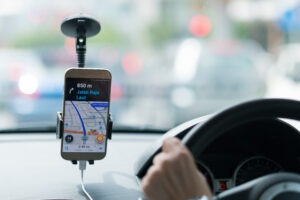The United States government takes drunk driving seriously because drunk drivers endanger themselves as well as everyone else on the road. Not all drunk driving cases are the same, though. In fact, DUI may be charged as a misdemeanor or a felony.
A variety of factors contribute to the severity of a DUI penalty, including:
- The presence of children
- The driver’s Blood Alcohol Concentration (BAC)
- Speed
- Injuries sustained by other drivers
In most states, DUI cases are considered “extreme” if the driver is found operating a vehicle with an unusually high BAC. In all fifty states, it is illegal to operate a motor vehicle with a BAC higher than .08%. In many states, DUI charges and penalties may be increased if the driver operated a motor vehicle with a BAC of .15% – nearly twice the legal limit.
If you or a loved one was involved in a drunk driving accident, call the Zinda Law Group drunk driving lawyers today at (800) 863-5312 for a free consultation.
First-Time Offender Punishments
When someone is convicted of driving under the influence for the first time, states take similar approaches to punishing the offender. The person will likely have to pay a fine, spend some time in jail, have his or her license revoked or restricted, and take a course about drunk driving or alcoholism.

John (Jack) Zinda
Founder / CEO
Over 100 years of combined experience representing injured victims across the country.
Available 24 / 7|Free ConsultationOther Punishments
In addition to those typical punishments, some states impose other forms of penalties. These can include ignition interlock devices, more intensive DUI schools, and alcohol or drug treatment.
An ignition interlock device is a handheld breathalyzer that prevents a driver from being able to start his or her car after drinking alcohol. Drivers blow into the mouthpiece to provide a breath sample, and the ignition interlock device tests the sample to check whether the driver’s breath alcohol content is within the legal limit. If the driver’s breath sample is within the legal limit, the device allows the driver to put the keys in the ignition and start the car.
Depending on the type of substance or the driver’s level of intoxication, the driver may need to complete a course or receive more intensive treatment. Often, drivers who successfully complete the course or treatment will be allowed to drive again. However, if the offender is not able to complete the program because he or she misses meetings or otherwise violates the terms of his or her sentence, then the offender may not have his or her driving privileges returned.
Even first-time offenders can receive these punishments, depending on the severity of the situation. For example, a first-time offender with an extreme DUI might have to attend Alcoholics Anonymous meetings as part of his or her penalty for drunk driving.

Neil Solomon
Partner
Real results matter. We do not get paid unless we win your case.
Available 24 / 7|Free ConsultationHabitual Offender Punishments
Many states have created laws specifically aimed at habitual offenders who have been convicted for three DUIs within a certain time period. These states have felony penalties for habitual offenders.
As a habitual offender, you could face more jail time. For example, a third DUI in Texas leads to a jail sentence of two to ten years. In addition to more jail time, you will pay higher fines. A third DUI in Arizona leads to a fine of at least $4,000.
Most habitual offenders will have their licenses revoked. While you can have your license revoked even as a first-time offender, this punishment is usually harsher for habitual offenders. In New Mexico, your license could be revoked for three years, and other states have even longer revocation periods.
You could face automatic felony charges as a habitual offender. Usually, you receive a misdemeanor for your first DUI. When it is your third DUI, you may receive an automatic felony charge.
Your vehicle could be impounded for a set amount of time when you are a habitual offender. Or, in very serious cases, a court might force you to forfeit your vehicle by selling it.
Note that these penalties often stack on top of one another. Rather than facing more jail time or a higher fine, you will usually be penalized with all or most of the above as a habitual offender.

Jason Aldridge
Attorney
Standing by 24 hours a day, 7 days a week ready to answer in your time of need.
Available 24 / 7|Free ConsultationSentencing Enhancements for Extreme DUIs
There are several circumstances that state laws consider extreme. These circumstances enhance the sentence of the driver because they are particularly harmful to the drunk driver and other drivers on the road. A driver might be subject to a sentence enhancement if:
- The driver’s BAC was more than twice the legal limit.
- The drunk driver was in an accident and another person was injured.
- The driver refused a breathalyzer.
- The drunk driver was speeding or driving recklessly.
- The drunk driver’s car contained a child under the age of fourteen.

Cole Gumm
Attorney
We are here to ensure you won’t have to face this difficult time alone.
Available 24 / 7|Free ConsultationNeed Help? Contact Zinda Law Group Today
Those who have been involved in a drunk driving accident can face months, sometimes years of litigation. The other party involved in the accident will probably try to reduce their liability as much as possible and make you pay for the injuries from the accident. At Zinda Law Group, we know how to negotiate with the insurance companies and lawyers on the other side to help you pursue maximum compensation.
When you work with us, you have our No Win, No Fee Guarantee that you do not need to pay us unless we win your case for you. Speak with an attorney at Zinda Law Group today by calling (800) 863-5312 to schedule your 100% free consultation.
Meetings with attorneys are available by appointment only.

Jason Aldridge
Attorney
We have successfully represented clients in a wide variety of cases across the country.
Available 24 / 7|Free Consultation











